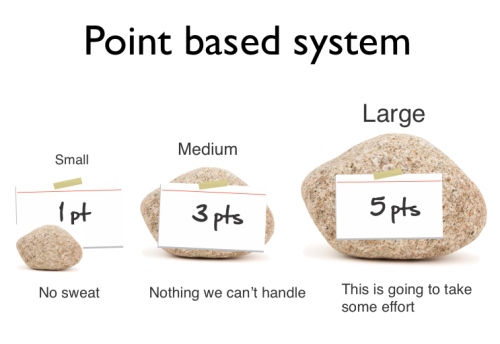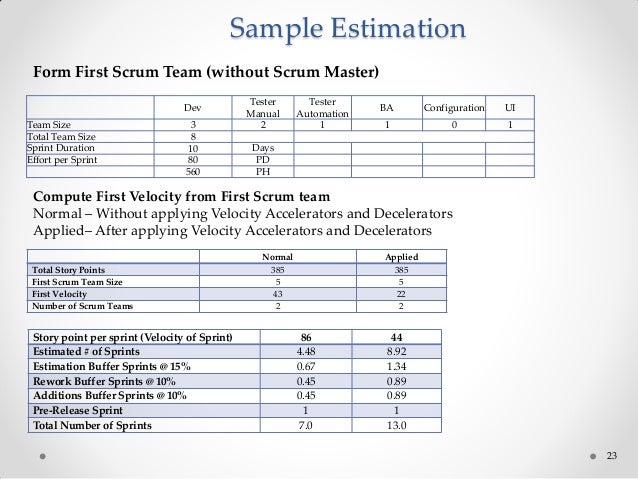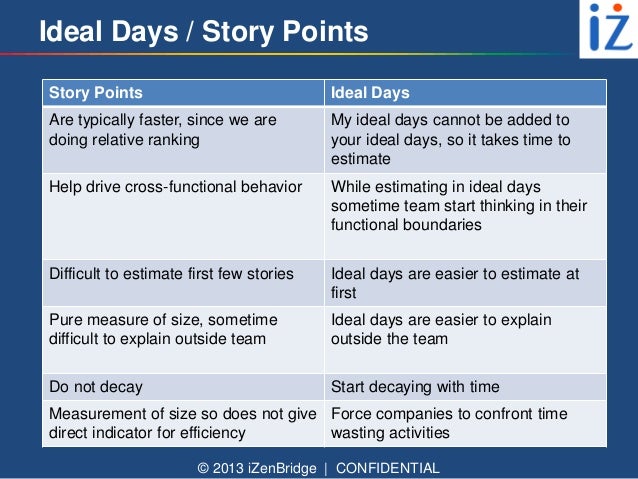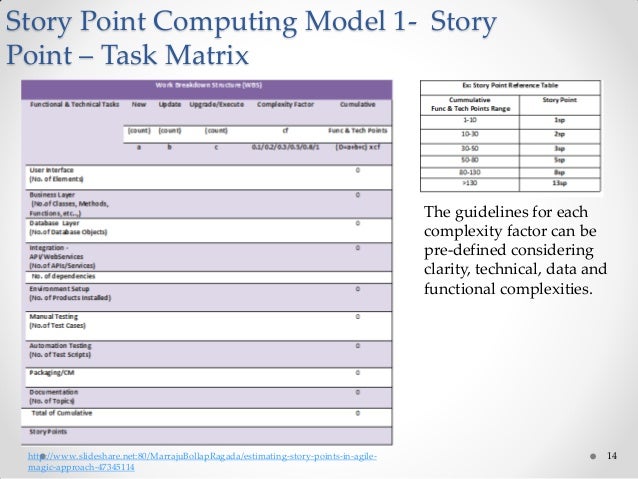Agile Story Point Estimation Template
Agile story point estimation template - First, the entire program is iterative. Small enough to fit into a program increment or maximum of three. Provide business value that can be measured in an objective way; The most successful companies running agile at scale share three common traits. Be estimable — there must be enough information for the agile team to estimate the work of implementing the feature; Managing project change projects are all about change and at some point during the project lifecycle it is highly likely that something in the project plan, business case or project deliverables will need to change. 25 + 35 + 30 = 90/3 = 30. It’s calculated at the end of a sprint by adding up all of the completed user story point estimations and averaged out over the course of several sprints. For example, if in sprint 1 the team completed 25 story points, in sprint 2 they completed 35, and in sprint 3 they completed 30, the team velocity would be 30. Each feature must have acceptance criteria what are the characteristics of the features?
It might be that a change is needed to add a feature to a product, to fix a defect or a mitigating action to manage a risk might require a change to the project approach.
Agile Story Point Estimation Techniques TShirt Sizing by Ankur Mistry
First, the entire program is iterative. It might be that a change is needed to add a feature to a product, to fix a defect or a mitigating action to manage a risk might require a change to the project approach. The most successful companies running agile at scale share three common traits.
Agile Story Point Estimation And Planning Framework Presentation
Provide business value that can be measured in an objective way; Small enough to fit into a program increment or maximum of three. First, the entire program is iterative.
Agile
It’s calculated at the end of a sprint by adding up all of the completed user story point estimations and averaged out over the course of several sprints. The most successful companies running agile at scale share three common traits. For example, if in sprint 1 the team completed 25 story points, in sprint 2 they completed 35, and in sprint 3 they completed 30, the team velocity would be 30.
Agile Estimation for Fixed Price Model
Be estimable — there must be enough information for the agile team to estimate the work of implementing the feature; Small enough to fit into a program increment or maximum of three. 25 + 35 + 30 = 90/3 = 30.
Webinar on Agile Estimation iZenBridge
25 + 35 + 30 = 90/3 = 30. First, the entire program is iterative. For example, if in sprint 1 the team completed 25 story points, in sprint 2 they completed 35, and in sprint 3 they completed 30, the team velocity would be 30.
Agile Estimation for Fixed Price Model
Provide business value that can be measured in an objective way; Managing project change projects are all about change and at some point during the project lifecycle it is highly likely that something in the project plan, business case or project deliverables will need to change. Small enough to fit into a program increment or maximum of three.
User Story Sizing using Agile Relative Estimation
Provide business value that can be measured in an objective way; First, the entire program is iterative. The most successful companies running agile at scale share three common traits.
Agile Methodology The Sprint Planning Meeting
Managing project change projects are all about change and at some point during the project lifecycle it is highly likely that something in the project plan, business case or project deliverables will need to change. For example, if in sprint 1 the team completed 25 story points, in sprint 2 they completed 35, and in sprint 3 they completed 30, the team velocity would be 30. The most successful companies running agile at scale share three common traits.
Each feature must have acceptance criteria what are the characteristics of the features? Be estimable — there must be enough information for the agile team to estimate the work of implementing the feature; For example, if in sprint 1 the team completed 25 story points, in sprint 2 they completed 35, and in sprint 3 they completed 30, the team velocity would be 30. Provide business value that can be measured in an objective way; Managing project change projects are all about change and at some point during the project lifecycle it is highly likely that something in the project plan, business case or project deliverables will need to change. Small enough to fit into a program increment or maximum of three. The most successful companies running agile at scale share three common traits. It’s calculated at the end of a sprint by adding up all of the completed user story point estimations and averaged out over the course of several sprints. 25 + 35 + 30 = 90/3 = 30. First, the entire program is iterative.
It might be that a change is needed to add a feature to a product, to fix a defect or a mitigating action to manage a risk might require a change to the project approach.






